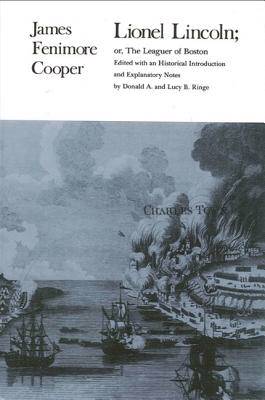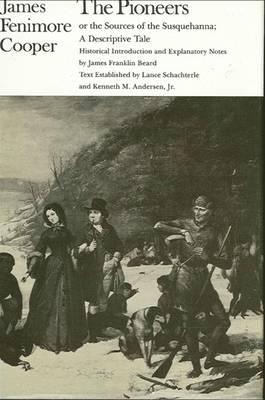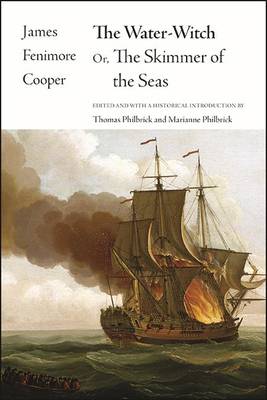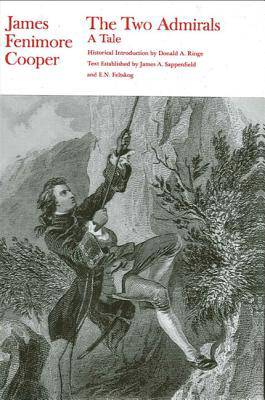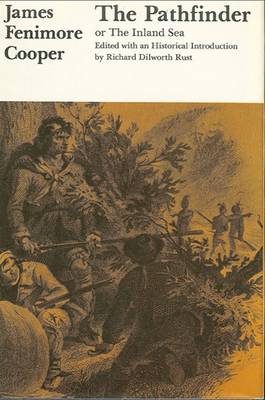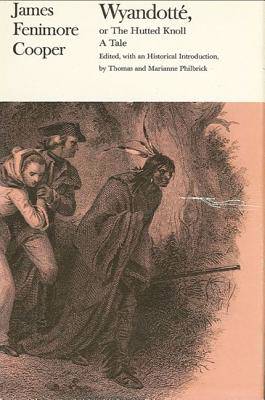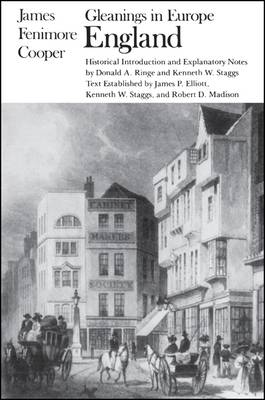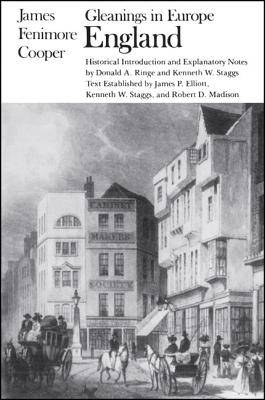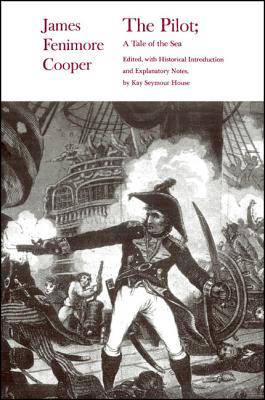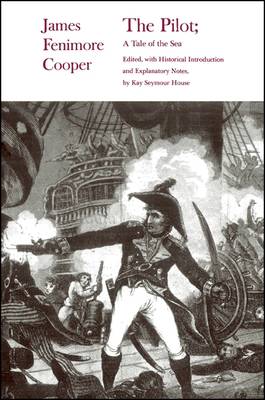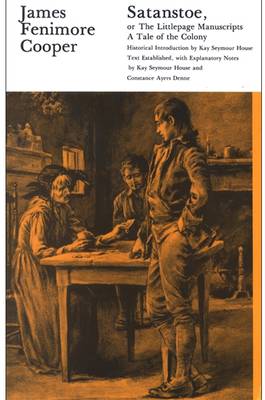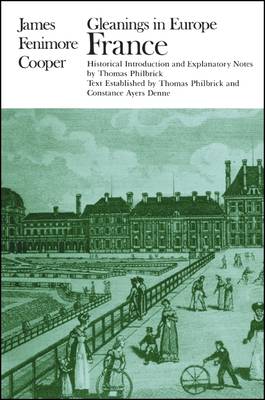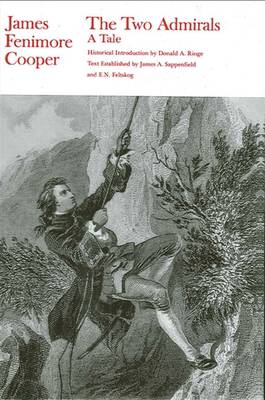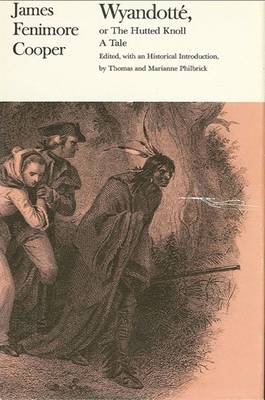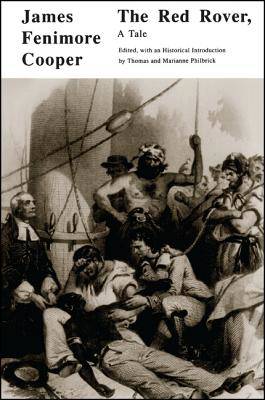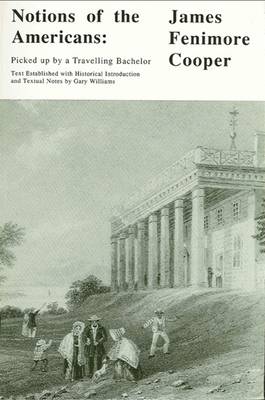
Bedankt voor het vertrouwen het afgelopen jaar! Om jou te bedanken bieden we GRATIS verzending (in België) aan op alles gedurende de hele maand januari.
- Afhalen na 1 uur in een winkel met voorraad
- In januari gratis thuislevering in België
- Ruim aanbod met 7 miljoen producten
Bedankt voor het vertrouwen het afgelopen jaar! Om jou te bedanken bieden we GRATIS verzending (in België) aan op alles gedurende de hele maand januari.
- Afhalen na 1 uur in een winkel met voorraad
- In januari gratis thuislevering in België
- Ruim aanbod met 7 miljoen producten
Zoeken
Reeksen: boeken uit de reeks Writings of James Fenimore Cooper
-
Lionel Lincoln: Or, the Leaguer of Boston
James Fenimore Cooper
- Hardcover | Engels | Writings of James Fenimore Cooper
- Written to commemorate the fiftieth anniversary of the beginnings of the American Revolution, Lionel Lincoln was a radically new experiment in histori... Lees meer
€ 151,45Levering 1 à 4 weken€ 151,45Levering 1 à 4 weken -
The Prairie
James Fenimore Cooper
- Paperback | Engels | Writings of James Fenimore Cooper
- In the spring of 1826, soon after the publication of The Last of the Mohicans, James Fenimore Cooper immersed himself in The Prairie. In taking Natty ... Lees meer
€ 64,45Levering 2 à 3 weken€ 64,45Levering 2 à 3 weken -
The Pioneers or the Sources of the Susquehanna
James Fenimore Cooper
- Paperback | Engels | Writings of James Fenimore Cooper
- Written in 1821-22 at a crucial point in Cooper's life and based on some of his most cherished youthful memories, The Pioneers today evokes the Americ... Lees meer
€ 61,45Levering 2 à 3 weken€ 61,45Levering 2 à 3 weken -
The Water-Witch
James Fenimore Cooper
- Paperback | Engels | Writings of James Fenimore Cooper
- An exciting tale of nautical adventure on the waters of colonial New York Harbor. Chiefly set on the waters and islands of New York Harbor in the earl... Lees meer
€ 65,95Levering 2 à 3 weken€ 65,95Levering 2 à 3 weken -
The Two Admirals
James Fenimore Cooper
- Hardcover | Engels | Writings of James Fenimore Cooper
- Author of the first scholarly history of the United States Navy, James Fenimore Cooper had long hoped to commemorate the American Navy by representing... Lees meer
€ 151,45Levering 1 à 4 weken€ 151,45Levering 1 à 4 weken -
The Pathfinder
James Fenimore Cooper
- Paperback | Engels | Writings of James Fenimore Cooper
- With the publication of The Pathfinder in 1840, James Fenimore Cooper engaged in what he called the "hazardous experiment" of reviving one of his most... Lees meer
€ 60,95Levering 1 à 4 weken€ 60,95Levering 1 à 4 weken -
Gleanings in Europe
James Fenimore Cooper
- Hardcover | Engels | Writings of James Fenimore Cooper
- Gleanings in Europe: The Rhine is an account of James Fenimore Cooper's travels in Europe at the time of the 1832 revolt in Paris, when he hoped Gener... Lees meer
€ 151,45Levering 1 à 4 weken€ 151,45Levering 1 à 4 weken -
Wyandotte, or the Hutted Knoll
James Fenimore Cooper
- Hardcover | Engels | Writings of James Fenimore Cooper
- "One of the misfortunes of a nation, is to hear little besides its own praises," wrote James Fenimore Cooper in his Preface to Wyandotté in 1843. The ... Lees meer
€ 151,45Levering 1 à 4 weken€ 151,45Levering 1 à 4 weken -
The Wing-And-Wing, or Le Feu-Follet
James Fenimore Cooper
- Hardcover | Engels | Writings of James Fenimore Cooper
- In 1842, James Fenimore Cooper returned to transatlantic themes with a thrilling historical novel set in the Mediterranean Sea, weaving together a cha... Lees meer
€ 151,45Levering 1 à 4 weken€ 151,45Levering 1 à 4 weken -
Gleanings in Europe
James Fenimore Cooper
- Paperback | Engels | Writings of James Fenimore Cooper
- A contemporaneous reviewer called James Fenimore Cooper's England "unquestionably the most searching and thoughtful, not TO say philosophical of any" ... Lees meer
€ 56,45Levering 1 à 4 weken€ 56,45Levering 1 à 4 weken -
Gleanings in Europe
James Fenimore Cooper
- Hardcover | Engels | Writings of James Fenimore Cooper
- A contemporaneous reviewer called James Fenimore Cooper's England "unquestionably the most searching and thoughtful, not TO say philosophical of any" ... Lees meer
€ 151,45Levering 1 à 4 weken€ 151,45Levering 1 à 4 weken -
B'Nai B'Rith and the Challenge of Ethnic Leadership
Deborah Dash Moore
- Hardcover | Engels | Writings of James Fenimore Cooper
- B'nai B'rith has a history almost as diverse as the story of American Jewry itself. The oldest secular Jewish organization in the United States, it wa... Lees meer
€ 151,45Levering 1 à 4 weken€ 151,45Levering 1 à 4 weken -
The Pilot
James Fenimore Cooper
- Hardcover | Engels | Writings of James Fenimore Cooper
- Having drawn on local knowledge and private information for The Spy and on his own boyhood experiences for The Pioneers, it was inevitable that Cooper... Lees meer
€ 145,45Levering 1 à 4 weken€ 145,45Levering 1 à 4 weken -
The Pilot
James Fenimore Cooper
- Paperback | Engels | Writings of James Fenimore Cooper
- Having drawn on local knowledge and private information for The Spy and on his own boyhood experiences for The Pioneers, it was inevitable that Cooper... Lees meer
€ 60,95Levering 1 à 4 weken€ 60,95Levering 1 à 4 weken -
Gleanings in Europe
James Fenimore Cooper
- Paperback | Engels | Writings of James Fenimore Cooper
- Gleanings in Europe: The Rhine is an account of James Fenimore Cooper's travels in Europe at the time of the 1832 revolt in Paris, when he hoped Gener... Lees meer
€ 56,45Levering 1 à 4 weken€ 56,45Levering 1 à 4 weken -
Satanstoe, or the Littlepage Manuscripts
James Fenimore Cooper
- Paperback | Engels | Writings of James Fenimore Cooper
- Though Satanstoe has been too much neglected by readers of Cooper's time and ours, it is one of his most interesting books, combining nostalgic autobi... Lees meer
€ 64,45Levering 2 à 3 weken€ 64,45Levering 2 à 3 weken -
Gleanings in Europe
James Fenimore Cooper
- Paperback | Engels | Writings of James Fenimore Cooper
- France (1837) was the third volume published in Cooper's Gleanings in Europe series, but first in the chronology of his European experience. Less sequ... Lees meer
€ 56,45Levering 1 à 4 weken€ 56,45Levering 1 à 4 weken -
Gleanings in Europe
James Fenimore Cooper
- Paperback | Engels | Writings of James Fenimore Cooper
- In the summer of 1828 James Fenimore Cooper, his wife, and their five children set out from Paris for Switzerland, and Cooper wrote that he experience... Lees meer
€ 56,45Levering 1 à 4 weken€ 56,45Levering 1 à 4 weken -
The Two Admirals
James Fenimore Cooper
- Paperback | Engels | Writings of James Fenimore Cooper
- Author of the first scholarly history of the United States Navy, James Fenimore Cooper had long hoped to commemorate the American Navy by representing... Lees meer
€ 60,95Levering 1 à 4 weken€ 60,95Levering 1 à 4 weken -
Wyandotte, or the Hutted Knoll
James Fenimore Cooper
- Paperback | Engels | Writings of James Fenimore Cooper
- "One of the misfortunes of a nation, is to hear little besides its own praises," wrote James Fenimore Cooper in his Preface to Wyandotté in 1843. The ... Lees meer
€ 57,95Levering 1 à 4 weken€ 57,95Levering 1 à 4 weken -
The Red Rover
James Fenimore Cooper
- Hardcover | Engels | Writings of James Fenimore Cooper
- Turning to his own extensive maritime experience, Cooper's novel, written in Paris in 1827, reflects his immersion in the romantic movement that was s... Lees meer
€ 151,45Levering 1 à 4 weken€ 151,45Levering 1 à 4 weken -
Notions of the Americans
James Fenimore Cooper
- Paperback | Engels | Writings of James Fenimore Cooper
- Notions of the Americans in considered Cooper's first work of non-fiction despite a thin overlay of character and plot. Written in the form of a trave... Lees meer
€ 73,45Levering 1 à 4 weken€ 73,45Levering 1 à 4 weken -
The Deerslayer or the First Warpath
James Fenimore Cooper
- Paperback | Engels | Writings of James Fenimore Cooper
- Written during a nostalgic interval during Cooper's stormy battles with the Whig Press, The Deerslayer (1841) is the last of the world-famous Leathers... Lees meer
€ 62,95Levering 1 à 4 weken€ 62,95Levering 1 à 4 weken -
The Spy
James Fenimore Cooper
- Paperback | Engels | Writings of James Fenimore Cooper
- An exciting Revolutionary War tale of double agents and counterespionage in New York State in 1780. A year after his imitative first novel Precaution ... Lees meer
€ 65,95Levering 2 à 3 weken€ 65,95Levering 2 à 3 weken







